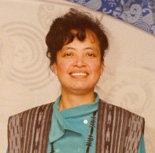|
 Nena
Benton Nena
Benton
ICEL Coordinator
The late Nena Benton became a member of ICEL at the 4th Conference in
Washington DC in 1994. In 1996, at the 5th Conference
in Cape Town, it was decided that the 7th Conference
would be held in New Zealand, and Nena was asked
to be Coordinator.
She has had an interest and involvement in experiential learning
since her childhood, when she learned how to make
batteries and help her father assemble radios
and stereo sets to augment his meagre income as
a primary school principal in the Philippines.
Later, as an anthropologist based
at the Ateneo de Manila University, she studied
child rearing practices in isolated communities
and urban settings.
After coming to New Zealand in 1972, she joined the staff of the
New Zealand Council for Educational research,
where she held various positions until taking
early retirement and becoming an independent consultant
in 1996. As a result of a request from the late
John Tapiata, a noted Maori educator, in 1989
she began a study of the recognition of prior
experiential learning in the context of social
work. Her pioneering work in this area was incorporated
into the official guidelines for the training
and accreditation of social workers, and was the
beginning of a long-term involvement in writing
and consulting on the theory and practice of the
assessment and incorporation of experiential learning
in higher education. In 1996 she was awarded a
Winston Churchill Fellowship which enabled her
to investigate the recognition of prior learning
in Universities in South Africa, Australia, Canada
and the United States. She also worked extensively
in the area of the maintenance
and revitalization of the Maori language, in collaboration
with her husband, Richard Benton.
At the time of her death after a long and corageous battle with cancer in May 2007 she was a member of the Advisory Committee for the University
of Auckland's Centre for Continuing Education
and the International Advisory Board of Terralingua.
In addition to her consultancy work, Nena took
an active and practical interest in working experientially
with members of her family on the development
of a small farm as an educational resource incorporating
the principles of organic horticulture and permaculture.
|